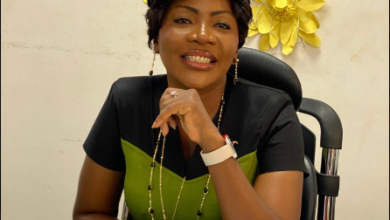
|
Getting your Trinity Audio player ready...
|
In the bustling streets of Lagos, young girls can be seen weaving between traffic with trays of goods balanced on their heads. Despite Lagos State’s ban on street trading and hawking under the Street Trading and Illegal Market Prohibition Law 2003, the practice persists, exposing minors, especially girls, to abuse, accidents, and exploitation.
“I Was Just 13” – Barakat’s Story
Barakat (not her real name) recalled her time as a teenage hawker. “I was just 13 when I started hawking. I carried pure water and groundnuts around Ayobo-Ipaja. Men would sometimes call me, touch me, and make promises. It was frightening, but I could not stop because my family depended on me.”
Her mother explained the desperation behind sending Barakat to the streets. “I didn’t like it, but we had no choice. There was no money for food or school. I know the dangers, but survival pushed us there.”
Their story mirrors that of thousands of underage girls across Lagos who, out of poverty, become trapped in street trading, often at great personal risk.
Law Versus Reality
The Lagos State Street Trading and Illegal Market Prohibition Law 2003 clearly criminalises street hawking, prescribing fines of ₦90,000 or imprisonment for offenders. Yet, data shows enforcement remains weak.
According to the Lagos Bureau of Statistics (2022), over 1.5 million children in Lagos are engaged in child labour, with a significant proportion in informal street trading. UNICEF reports further warn that Nigerian girls in urban centres are particularly vulnerable to sexual exploitation during hawking.
Council Unit Interventions
A senior official at the Lagos Child Protection Unit, who spoke on condition of anonymity, confirmed that cases of child labour were routinely handled at the council level.
“We handle cases of child labour within the council. For those we can’t handle, especially cases involving rape or sexual assault linked to street trading, we transfer to the police for proper prosecution. For remorseful parents, we focus on education and sensitisation about the dangers of street trading for underage girls.”
She added that the Lagos State House of Assembly, through local council chairmen, had been supportive in budget allocations. “Every year we organise an empowerment programme for teenagers called ‘Speed Up Lagos’ with skills training in tailoring, hairdressing, catering, nylon production, and event management. At the end, participants receive certificates and working tools.”
Advocacy and Empowerment
Civil society organisations have stepped in to fill the gap left by weak enforcement. Ambassador Motunrayo Mariam Williams-Johnson, convener of Kami Foundation, said her organisation has been at the forefront of protecting vulnerable girls.
We cannot allow poverty to keep forcing our girls into unsafe conditions. Street trading is not just an economic issue; it is a human rights violation. We need to ensure that every girl child in Lagos is safe, educated, and empowered.”
Calls for Stronger Action
Women’s rights advocates stress that the government must combine enforcement with education. They noted that while bans exist, addressing root causes like poverty, unemployment, and lack of access to education is key.
The Bigger Picture
Street trading may appear like a survival strategy for families, but for many girls it means missing out on education, facing sexual harassment, and being exposed to dangerous environments.
As Barakat puts it, “I don’t want my younger sisters to hawk like I did. It is not life for a child.”
Until Lagos fully enforces existing laws, strengthens social safety nets, and prioritises empowerment programmes, thousands of underage girls remain at risk in Nigeria’s busiest city.
This article was first published on Nigeria News.






